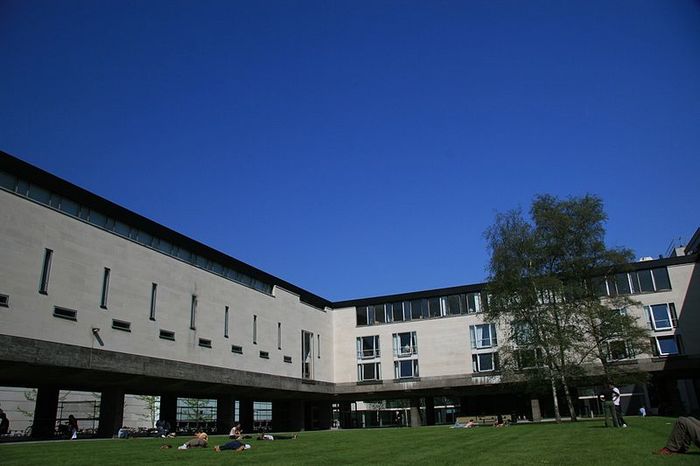History Tripos gets a makeover – but not everyone is happy
One student said that they have ‘been told multiple times that we are the guinea pigs for this new system’

Since the start of Michaelmas Term, freshers on the History Tripos have been studying a new look tripos that has undergone extensive reform for the first time in decades. Reaction to the changes among students has been mixed, with some criticising the faculty’s organisation of the changes, whilst others are enjoying the new structure of the course.
The new Tripos has been written to focus on three areas of historical teaching — knowledge, the craft of history and historical thinking. Instead of taking British, European, American and world history papers across first and second year, freshers will instead take ‘Outline’ papers. These papers generally cover a longer time period, with the modern British paper “Modern Britain and Ireland, 1750 to the present” replacing four separate papers that tackled political and socio-economic history separately on the old Tripos.
British and European history is no longer compulsory. New papers include one that focuses on “The Global South from 1750 to the present” and “the Twentieth Century World” as the faculty aims to “refresh teaching”.
The new Tripos has a significantly reformed structure to previous years, where first and second year students wrote one essay for one supervision each week. In the new system, students have two supervisions per week, split between the two “Outline” papers that they choose.
Supervisions do not take place in week three and week six. Students will take twelve supervisions for each “Outline” paper split across Michaelmas and Lent. These supervisions cover six essays and six non-essay tasks. As a result, students will now write six essays per term, instead of eight as in previous years, which will be accompanied by six non-essay tasks.
Each week, students have one essay supervision and one non-essay supervision. This has been criticised by some students, with one student saying: “the two supervisions are in constant conflict with each other” and another student complaining that the new Tripos is “hard to balance” which means that “it almost always ends in the non-essay supervision work being left to the last minute or being sacrificed to try and get the essay done”.
Another student summed up the complaints, arguing that they would “rather just have the one essay to focus on each week and do that really well”.
Students have also raised concerns about competing deadlines in the new Tripos, that “supervisors often seem unaware of”, as one student told Varsity that they “know people who every week have the essay due on the same day as their non-essay supervision”.
Despite the criticism, many students welcomed the changes and said that they find the papers themselves interesting despite the organisational difficulties.
One student said that they particularly “like the informality of the non-essay supervision. Knowing you’re not going in with the risk of a dressing down for a bad essay has meant I’ve found these much more enjoyable”.
Although some students have praised the new content of the course, questions remain about its organisation and how much information is available to students. One student said that they have “been told multiple times that we are the guinea pigs for this new system” and that “lots of supervisors seem themselves to doubt how well this new system has been planned and thought through”.
Freshers also said that they were not aware of the detail of the new system during application season, saying that “there was not much information available… beyond the fact that a new Tripos was coming in 2022”.
Another student said that second year historians they had spoken to “seem very happy to have just missed the introduction of the new course”.
Professor Andrew Arsan, Director of Undergraduate Studies, said that the new tripos was “designed to provide a broad, inclusive curriculum and clear progression through the degree” to “aid the transition from school to university” in first year”.

No more recorded lectures announcement sparks criticism
Professor Arsan said that the new tripos is beneficial as it allows for a broader geographical range, including South Asia, Sub–Saharan Africa and the Caribbean as well as Britain or Europe which “helps students to gain a more global sense of the past and a more holistic understanding of a particular area or period”. He stressed that “students can still study anything from ancient Greece and Rome to twenty-first century America”.
Professor Arsan said that the reaction to the new tripos has been “overwhelmingly positive” and that “both students and lecturers are equally excited”. He also said that the new course aims to reduce workload for students from 38-42 hours to 35-37 hours per week. This was achieved by setting guidelines for the amount of weekly reading students are expected to cover, and by suggesting that weekly essays are around 1,500 words, shorter than previously.
Professor Arsan also stressed that “the tripos is still very new, so we’re keeping all of this under careful review… including consulting closely with students”. Professor Arsan encouraged students to speak to their DoSes and supervisors with any concerns as the faculty “welcomes and encourages student feedback as part of our ongoing commitment to providing an exciting, intellectually enriching course for all”.
 News / Cambridge welcomes UK rejoining the Erasmus scheme20 December 2025
News / Cambridge welcomes UK rejoining the Erasmus scheme20 December 2025 News / CUP announces funding scheme for under-represented academics19 December 2025
News / CUP announces funding scheme for under-represented academics19 December 2025 News / News in Brief: humanoid chatbots, holiday specials, and harmonious scholarships21 December 2025
News / News in Brief: humanoid chatbots, holiday specials, and harmonious scholarships21 December 2025 News / SU reluctantly registers controversial women’s soc18 December 2025
News / SU reluctantly registers controversial women’s soc18 December 2025 Lifestyle / All I want for Christmas is a new hanukkiah22 December 2025
Lifestyle / All I want for Christmas is a new hanukkiah22 December 2025









